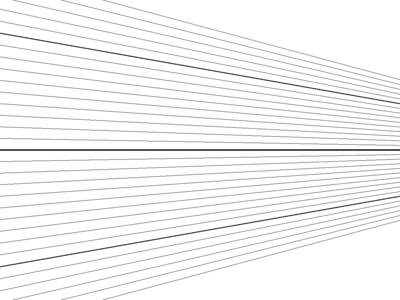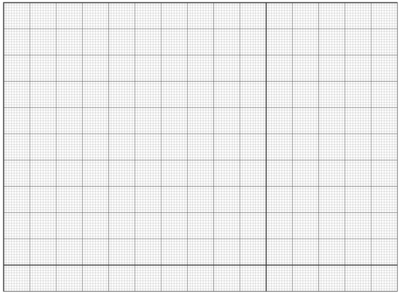User:MitchellNCharity/Old
Contents
Graph paper background
Converging lines to eyeball angles
A rough draft experimental tool to measure angles by holding up the laptop screen to your eye and looking along sight lines.
Objective: measure the angle between things in the environment. The idea: hold up the laptop, and put your eye to the edge, so the lines all appear to converge at you.
Unknown - reality check needed: is the laptop screen even visible at very shallow viewing angles? If you have hardware, please check and let me know.
The camera is an another way to measure environmental angles.
Here is a quick draft. I'll wait for the reality check before fleshing it out. Lines are at 1 degree intervals. The eye convergence is currently set at 100 mm from the screen edge.

SVG might be a better tech. Or even python.
Random brainstorming
In User_talk:MitchellNCharity. And Talk:Educational_content_ideas#Laptop as flexible physical object (ruler, etc).
How Big Are Things? at 800dpi might show up life-size on the laptop.
NASA's Visible Earth images for OLPC countries - Possible demo content?
NASA's Visible Earth has images sorted by country. Perhaps they might make good demo fodder. Some are whole country, others just a feature. Some are topical (some fire, or erosion, etc). Most have descriptive text (in english). Some stereo pairs.
TCC Tiny C Compiler - Include C toolchain on OLPC laptop?
My impression is a gcc toolchain is not planned for the laptop, due to space limitations (a fuzzy recollection - I now can't find it mentioned). So I note TCC, a Tiny C Compiler for x86. GCC compatible, small and fast. Same author as QEMU. So a C toolchain would fit on the laptop.
I also note its libtcc, which permits disk-less run-time C compilation and linking. Just in case anyone encounters a need for it.
